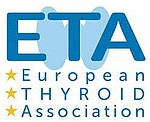Dr. Leonardo de Assis

Institut für Neurobiologie
Ratzeburger Allee 160
23562 Lübeck
Gebäude CBBM, 1.OG,
Raum 053
| Email: | leonardo.deassis(at)uni-luebeck.de |
| Phone: | +49 451 3101 4320 |
| Fax: | +49 451 3101 4304 |
Education
| Bachelor in Phamacy | Federal University of Ouro Preto | BR |
| Non-degree Exchange student | University of Montana | US |
| PhD in Physiology | Universidad of Sao Paulo | BR |
Academic Positions
| Postdoctoral Fellow | University of Sao Paulo | BR |
| Research Associate | Unviersity of Lübeck | DE |
Research Interest
Since my first biology classes, the complexity and beauty of nature, more specifically the human body, have always fascinated me. Fortunately, during high school, I was taught by teachers who always encouraged me to pursue more knowledge. This journey was strengthened when I started my major in Pharmacy back in Brazil. At that time, I was introduced to science and its investigative methods, and obviously, I realized that I should become a scientist. Such experience was intensified when I spent 15 months at the University of Montana (USA), where I took classes and had the opportunity to have hands-on experience in a lab.
Upon my return to Brazil, I started my PhD at the University of São Paulo (USP). During five years of academic training, I developed a research project that aimed at exploring the functionality of the photosensitive system and the circadian clock in the skin as well as in melanoma development. In my first postdoctoral experience, I focused on exploring the therapeutical role of the photosensitive system in melanoma therapy.
In my second postdoctoral experience, my research goals are still in circadian biology but are now focused on metabolism. Using in vitro and in vivo models associated with advanced gene editing, molecular biology, and different omics techniques, we aim to understand how thyroid hormones may be used to reverse liver diseases in interaction with the biological clock. Such research efforts are one of the objectives of the Local Control of Thyroid Hormone Action (LOCOTACT) research consortium, funded by the German Research Foundation (DFG).
If you are interested in this field or have an exciting idea for a project and/or collaboration, please do not hesitate to contact our group.
Funding
2019 – 2020 – Postdoctoral research fellowship (FAPESP)
2023 – 2025 - ETA Research Grant for Basic Science 2023











